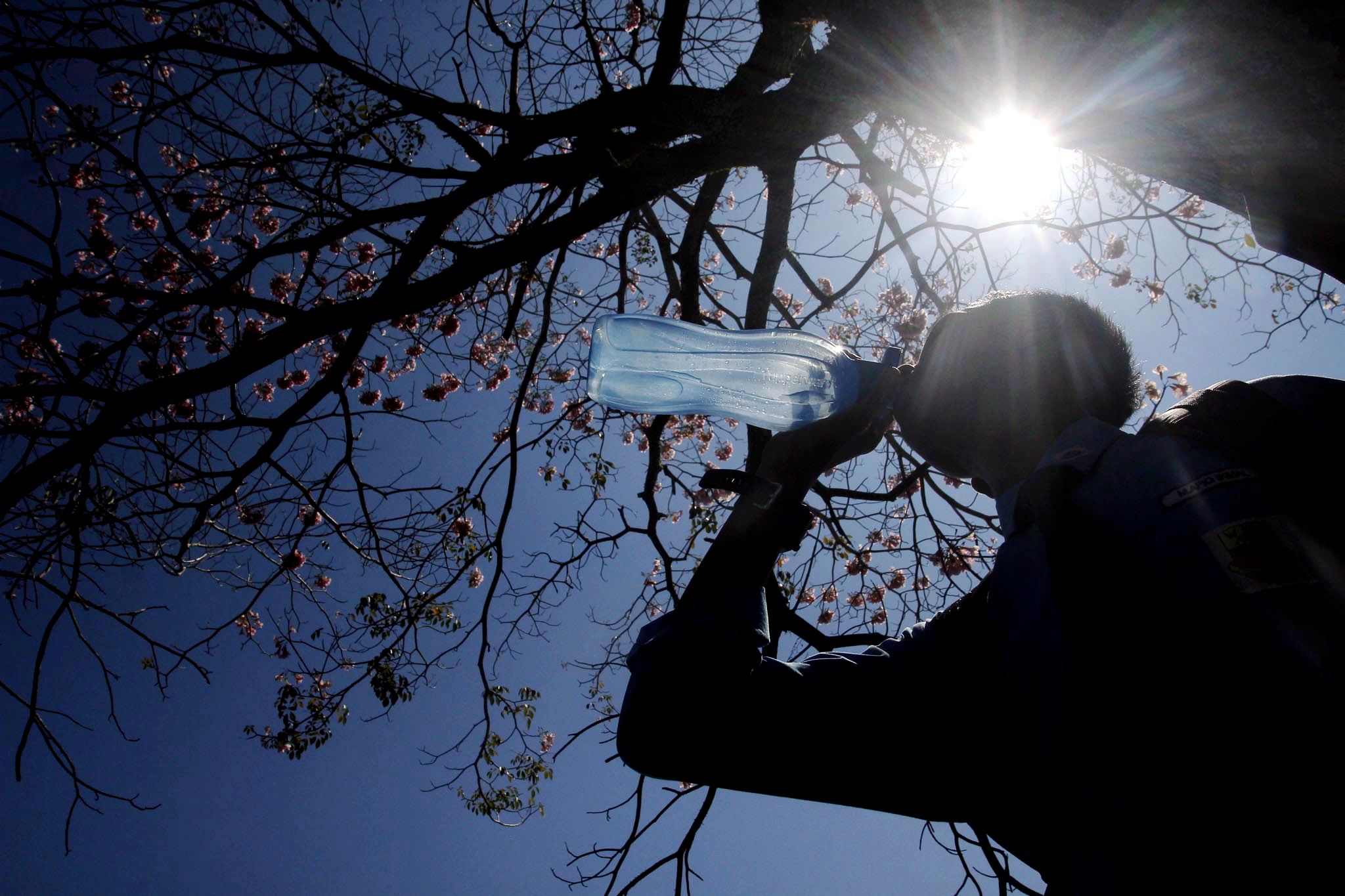ID :
404946
Tue, 04/26/2016 - 07:56
Auther :
Shortlink :
https://oananews.org//node/404946
The shortlink copeid
El Nino Causes Havoc To Human, Livestock Physiological, Psychological Well-Being

By Ismail Amsyar Mohd Said
KUALA LUMPUR, April 26 (Bernama) -- Not only does it disrupt global normal weather patterns, the El Niño phenomenon can also bring "stormy and extremely hot weather" into human physiological and psychological well-being.
Malaysia's Hospital Ampang medical officer Dr Muhamad Akmal Saleh said El Nino increased heat, which could have effects on the human body and consequently, lead to physiological and psychological stress.
According to the 28-year-old doctor, physiological is how the human body works and reacts to any changes in order to maintain normal physiological system while psychological stress is the effect from the physiological changes.
"Temperature changes can affect activities in our body and one of it is the enzyme activities. Enzyme, a form of protein, is the most important part of our physiological system and it can best work in our normal body temperature, which is 37 degree Celcius.
"Increase in temperature will lead to disruption of enzyme activities by thermal denaturation of the protein and thus, inactivate the protein and enzyme becomes denatured. Thus, when this happened, it will affect our physiological changes," he told Bernama here Monday.
El Niño occurs when sea surface temperatures in the central and eastern tropical Pacific Ocean become substantially warmer than average, causing a shift in atmospheric circulation. It is associated with a weakening, or even reversal of the prevailing trade winds.
Noting that the extreme increase in temperature could cause dehydration to the body, as well, Dr Muhamad Akmal said it happened when free water loss exceeded the free water intake.
"Free water loss can be due to excessive sweating, vomiting and urination and those facing dehydration will experience symptoms like fatigue and dizziness. The most dangerous symptom of excessive heat is heat stroke.
"Heat stroke occurs when we are having high body temperature accompanied by disorientation and combined with lack of sweating. Usually before a heat stroke occurs, people will show signs of heat exhaustion such as dizziness, mental confusion, headaches and weakness," he added.
Meanwhile, a study by the Faculty of Health Science, Adelaide University in October 2008 showed that extreme heat can affect the human mental health condition.
The study found that admission to the psychiatric ward was more during hot season as compared to other seasons, and that increase in environmental temperature could lead to an increase in aggression and violence.
Sharing similar view with the study, Dr Muhamad Akmal said those who suffered from psychological stress would experience the feeling of being tired, lethargic and demotivated, which eventually could lead to depression.
"We cannot avoid El Niño but we can try to overcome it by drinking adequate amounts of water. Avoid beverages containing alcohol or caffeine too, because those drinks can make you lose more fluids and worsen heat-related illness," he said.
The extreme weather can also cause physiological and psychological changes to animal although Dr Muhamad Akmal says it might not affect in the same manner as it does, a human.
Universiti Putra Malaysia Vice-Chancellor, Professor Dr Aini Ideris, who is a Professor in Avian Medicine and a veterinarian, said the humidity would be greater in hot weather, leading to heat stress and reduction in the production and growth of livestock.
According to her, extreme temperature will cause stress to the livestock and may lead to immuno-suppression where the normal flora will be disrupted and animal will succumb to diseases.
"The welfare of the livestock will be affected as the farm layout is not suitable with the current weather change, which will cause discomfort to the livestock.
"Consequently, the farmer will experience loss in the production of the farm, cash flow and returns in investment, leading to reduction in the food supply chain industry," she told Bernama.
Asked about the common signs of extremely hot weather or El Nino on livestock, she said among the signs were increase in respiration rate, sunken eyes if dehydrated, and heat stroke.
"If heat stroke happened, sudden death will take place and the animal mucous membrane will be congested. The animals appear restless and their fur will be in dry state," she said.
She noted that heat stroke effects were also visible on livestock when water source for the food was disrupted and the reduced water intake (by the livestock) would lead to dehydration that caused the heat stroke.
Asked about heat stress on non-ruminants (poultry), Dr Aini said the optimum temperature for growing broilers was between 18 and 22 degree Celcius while for layers (egg layers), it was between 19 and 22 degree Celcius.
"Because of the rapid growth rate and high metabolic heat production, broilers are very vulnerable to heat stress compared to layers.
"This (heat stress) will lead to immuno-suppression and increase broilers' vulnerability to diseases and poor antibody production against vaccinations," she said.
Therefore, Dr Aini said, farmers needed to ensure that livestock had access to water all the time to avoid dehydration.
"They also must avoid transporting livestock during the peak hour of extreme temperature as it will lead to heat stress on animals being transported for slaughter," she added. (photoBERNAMA)
--BERNAMA





